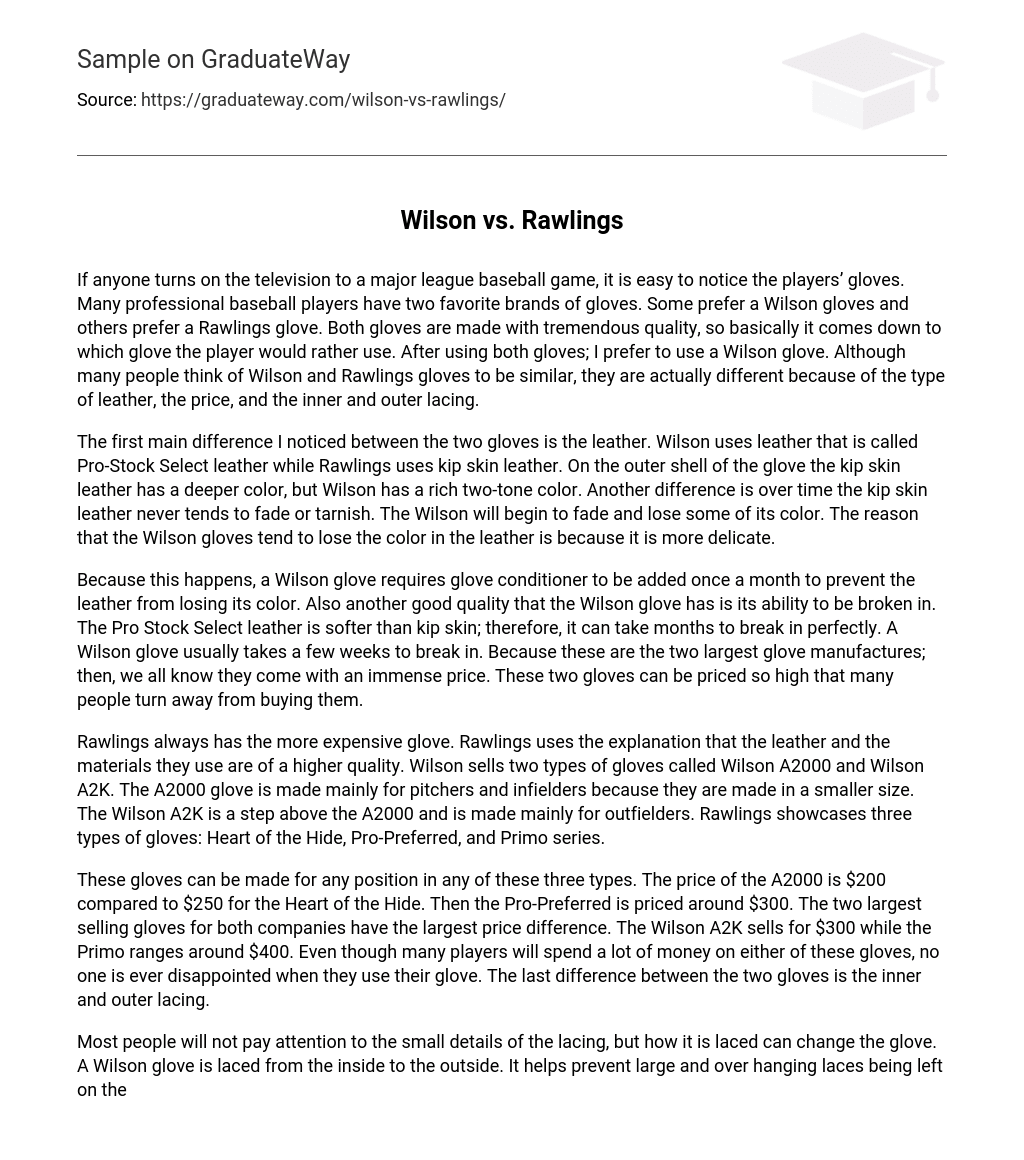When watching a major league baseball game, one cannot help but notice the players’ gloves. These gloves come in two popular brands, Wilson and Rawlings. While both brands are of excellent quality, each player has their own preference when it comes to choosing a glove. After personally trying both brands, my preference lies with Wilson gloves. Despite the perception of Wilson and Rawlings gloves being similar, they differ in terms of leather type, price, as well as inner and outer lacing.
The main difference between the two gloves is the type of leather used. Wilson uses Pro-Stock Select leather while Rawlings uses kip skin leather. The kip skin leather has a deeper color on the outer shell of the glove, while Wilson has a rich two-tone color. Additionally, over time, the kip skin leather remains unfaded and untarnished, unlike the Wilson leather which tends to fade and lose color. This is because the Wilson leather is more delicate.
Because of these reasons, a Wilson glove needs glove conditioner applied once a month in order to prevent the leather from losing color. Another advantageous feature of the Wilson glove is its break-in capability. The Pro Stock Select leather used in the glove is softer than kip skin, which means it may take several months to break in perfectly. On the other hand, a Wilson glove typically only takes a few weeks to break in. Due to the fact that these are the two leading glove manufacturers, it is widely recognized that they come with a significant price. The high pricing of these gloves often discourages many potential buyers.
Rawlings always offers the pricier glove, using their reason that their leather and materials are of superior quality. On the other hand, Wilson has two glove options known as Wilson A2000 and Wilson A2K. The Wilson A2000 glove is primarily designed for pitchers and infielders due to its smaller size, while the Wilson A2K is a higher-tier glove mainly intended for outfielders. Rawlings presents three glove series: Heart of the Hide, Pro-Preferred, and Primo.
These gloves can be made for any position in any of these three types. The A2000 is priced at $200, while the Heart of the Hide is priced at $250. The Pro-Preferred is around $300. The biggest price difference is found in the two top-selling gloves from both companies. The Wilson A2K sells for $300, while the Primo ranges around $400. Despite the high cost, players are never disappointed when they use these gloves. Another difference between the two gloves is their inner and outer lacing.
Most people may overlook the minor details of lacing, yet the way it is done can have an impact on the glove. Wilson gloves are laced inwards to outwards, reducing the risk of excessive and protruding laces on the exterior. On the other hand, Rawlings gloves are laced outwards to inwards, resulting in laces scattered across both the outer and inner shells. This can be troublesome for players when attempting to make a throw at home plate since the laces may hinder their transition.
Most players do not think much about the lacing of Rawlings gloves, but those who do tend to complain. Both of these gloves are owned by almost every baseball player. Many players will attest to their quality, considering them the top gloves on the market. Ultimately, it comes down to personal preference for each player. Every baseball player has their own preference when it comes to their glove and how they break it in. Whether a young man in high school or a professional player purchasing a new glove, they are always satisfied with Wilson or Rawlings baseball gloves.





